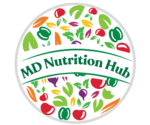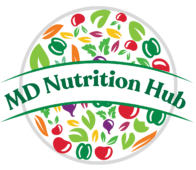Improve Your Digestive Health: Probiotics, Prebiotics, and Antioxidants
Discover how probiotics, prebiotics, and antioxidants can help improve your digestive health and learn why they are important for digestion and longevity. Let’s also explore which foods contain these and how you can choose wisely to keep your gut in top shape.
What are Probiotics and Prebiotics?
Probiotics are good bacteria and yeasts that help your stomach and intestines stay healthy. Foods like yogurt, kefir, sauerkraut, kombucha and kimchi contain probiotics. On the other hand, prebiotics are special fibers that are food for the probiotics. Some foods with prebiotics are bananas, onions, garlic, asparagus and whole grains.
Why Probiotics and Prebiotics Matter for Digestive Health AND Beyond
- Balancing Gut Bacteria: Probiotics maintain a good balance of helpful bacteria in your gut, which is crucial for digesting food and absorbing nutrients.
- Improving Digestion: Prebiotics support regular bowel movements and prevent constipation by helping beneficial bacteria grow.
- Boosting Immunity: A healthy gut supports a strong immune system, as many immune cells reside there.
- Nervous System: A healthy gut can positively affect mood and behavior.
- Hormone Secretion: Your gut influences your metabolism, blood sugars, and hunger.
The Role of Antioxidants in Digestive Health
Antioxidants are powerful substances in fruits, vegetables, nuts, and seeds. They protect your cells from damage caused by harmful molecules, keeping your digestive system healthy and reducing the risk of diseases. Imagine how a cut apple turns brown after a short time…this is oxidation. We have learned that if we put lemon juice on an apple after it is cut, it won’t turn brown…hence the lemon juice is an ANTI-oxidant.
Include Probiotics, Prebiotics, & Antioxidants in Your Diet to Improve your Digestive Health
- Breakfast Boost: Start your day with yogurt topped with berries and nuts. That is a meal packed with probiotics, prebiotics, and antioxidants.
- Smart Snacking: Snack on fruit with almonds or hummus with raw veggies to increase your intake of prebiotics and antioxidants
Additional Tip – Drink plenty of water throughout the day to aid digestion and stay hydrated. One recommendation is to drink half of your body weight in ounces each day.
Should I Take a Probiotic Supplement?
Probiotic supplements can be helpful to maintain a balanced gut health, supporting digestion and nutrient absorption. Prebiotic supplements may aid in regular bowel movements and overall gut health. When we take antibiotics, the bad and good bacteria in the gut can be erased and probiotics can help replenish the good guys. While probiotics are generally not known to be harmful, please be sure to speak with your medical provider before starting a probiotic. Also be sure to eat a diet rich in fiber so that the probiotics have food to feast on so they can work their best.
Conclusion
Taking care of your digestive health is crucial for feeling well overall and for our longevity. By adding probiotic-rich foods like yogurt, prebiotic-rich foods like bananas and whole grains, and antioxidant-rich foods like berries and leafy greens to your daily diet, you can support a healthy gut and improve digestion. Start making these simple dietary changes today for a happier, healthier digestive system in the long run.
My Recommendation
I do take a probiotic and the one I recommend is Physicians Choice 60 Billion Probiotic. It has 60 Billion CFUs (colony forming units) and has noticeably helped my family members with their digestive health as well. The other recommendation I have is to try Complete plant based protein shake with prebiotic fibers from Juice Plus – comes in delicious chocolate and vanilla and is very versatile to use for not only a shake, but protein balls, muffins and puddings. Contact me for a Complete recipe book.


